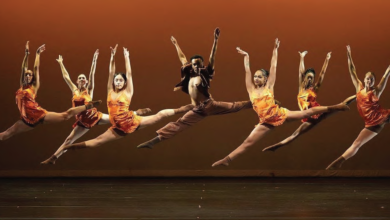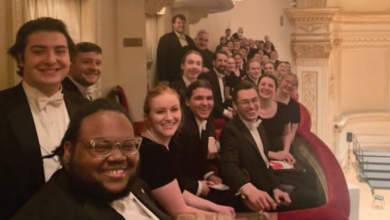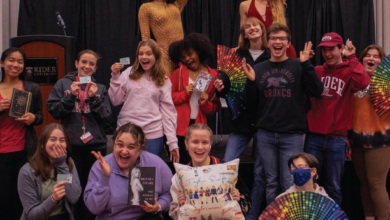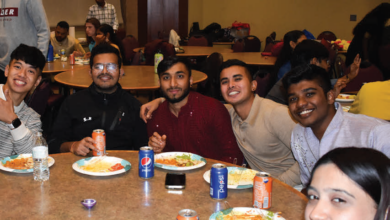
Rider student directs documentary on African American veterans’ fight for civil rights
By Sarah Siock
For most college students, the stress that comes with balancing classes, homework and extracurriculars is all-consuming. There is little time to relax, and it can be difficult to maintain a well-rounded social life. However, one Rider student manages to do all of the above and somehow still finds the time to direct a 12-part documentary series.
Junior film major Danielle Jackson made room in her already-busy schedule to step into the director’s chair and create a documentary that centers around African American veterans’ fight for civil rights. The project, titled “A Two-Front War,” combines two of Jackson’s passions — history and film.
“I am a nerd for this stuff. My crew does not particularly like history. However, it has been so rewarding during the process to hear them say, ‘I just learned something new.’ It makes me so happy,” said Jackson.
Jackson’s documentary began as a research project that was funded by Rider’s Undergraduate Research Scholar Award (URSA). With guidance from her advisor, Chair of the Department of Film and Television Shawn Kildea, Jackson felt her work was strong enough to be made into a feature-length film.
“Dr. Kildea and I had been talking for a long time about African American veterans and how they always get the shorter end of the stick in history books. We realized we had the potential to turn our project into a film. Once our proposed idea was accepted and our funds were secured, we just took the idea and ran with it,” said Jackson.
The first episode of Jackson’s film, which is set to premiere this spring, centers around two veterans named Charles Hamilton Houston (World War I) and Medgar Evers (World War II). Both individuals fought in the civil rights movement after returning home from war. Jackson explained that she wanted the film’s subjects to not only be veterans but also civil rights activists, to properly showcase the contrast of soldiers fighting a war abroad for a country that denied them equal rights at home.
“There are many people who were soldiers that also participated in the civil rights movement. However, it is very hard to find documented evidence of those individuals. Charles and Medgar kept popping up in all the preliminary research I did so I knew I had to feature them in the film,”said Jackson.
Extensive research was conducted by Jackson for her to become an expert on the veterans. Despite being a history buff, Jackson was surprised by some of the information she discovered about the treatment of Black soldiers.
“One fact that shocked me was the separation of medical blood by race during the world war. In many cases, wounded Caucasian soldiers who needed blood would refuse it from a Black person. It was mind-boggling to see that they were willing to die before receiving the blood,” said Jackson.
While Jackson was able to find subjects that adequately convey her message, there were still obstacles ahead in the filmmaking process that she would face. Jackson’s next step was to find historians and professors for the interview portions of the documentary. Finding these individuals was no easy task. Jackson said she sent emails to over 30 professors in the tri-state area asking for their help with the film. Jackson and her team traveled to various states to conduct the in-person interviews with the handful of professors who accepted their request.
The next challenge Jackson faced was funding for the film. While Jackson had the money from URSA, the cost to produce the film continued to rise. Jackson said she put out her own money to buy the necessary personal protective equipment to ensure her crew’s safety against the coronavirus pandemic while working. With plans to travel to Texas and California to interview the descendants of Houston and Evers, the decision was made to start a Kickstarter campaign that asked the public for donations. The Kickstarter quickly gained traction and exceeded Jackon’s expectation with $8,657 raised.
“Before the Kickstarter, my bank account was starting to dwindle. Once we received the money things started to come together much easier. Additionally, I had a whole bunch of people who decided to jump onto the project which helped me delegate responsibility,” said Jackson.
Jackson’s production team is made up of several Rider students with Kildea serving as an executive producer. Those who work with Jackson said her determined personality was what led them to join the project.
“Dani is extremely passionate and driven. I knew that whatever she would end up making was going to be excellent and it was something that I had to be a part of,” said junior film major Benjamin Ross, who is an executive producer of “A Two-Front War.”
Other crew members praised Jackson’s leadership skills.
“Dani is one of the smartest, most put-together women I have ever met. If anyone has any questions, she knows exactly what to say. She is going to do amazing things in this world, and I cannot think of anyone more deserving,” said junior film major Sarah Waldron, who is the film’s production manager.
Despite the praise, Jackson remains humble and hopes that her film will open the minds of viewers.
“I have never done anything this big. Time was our biggest challenge because we are doing this on top of classes and work. However, all of the obstacles are worth it,” said Jackson “I want people to walk away from this film with an expanded worldview. If people can come away with a better understanding and empathy for these soldiers, that would be the greatest reward.”
Jackson is the advertising manager for The Rider News. She was not involved with the writing or editing of this story.



